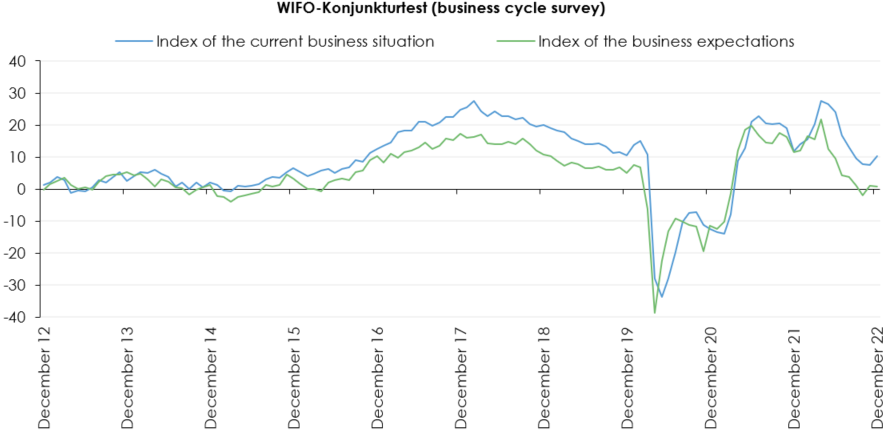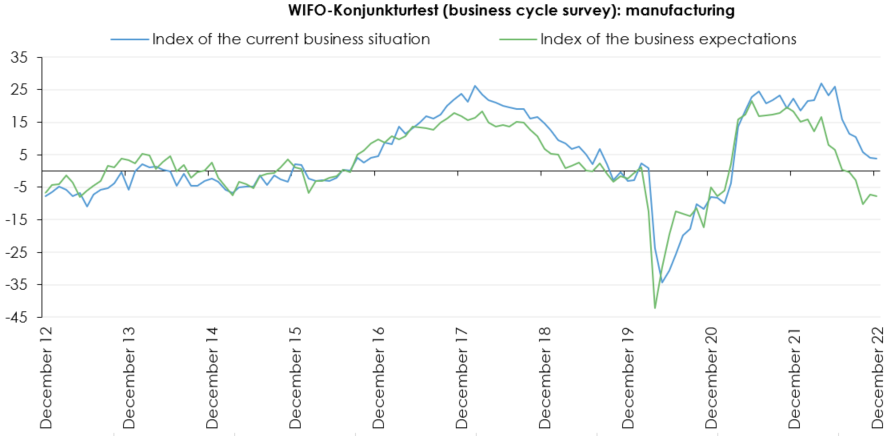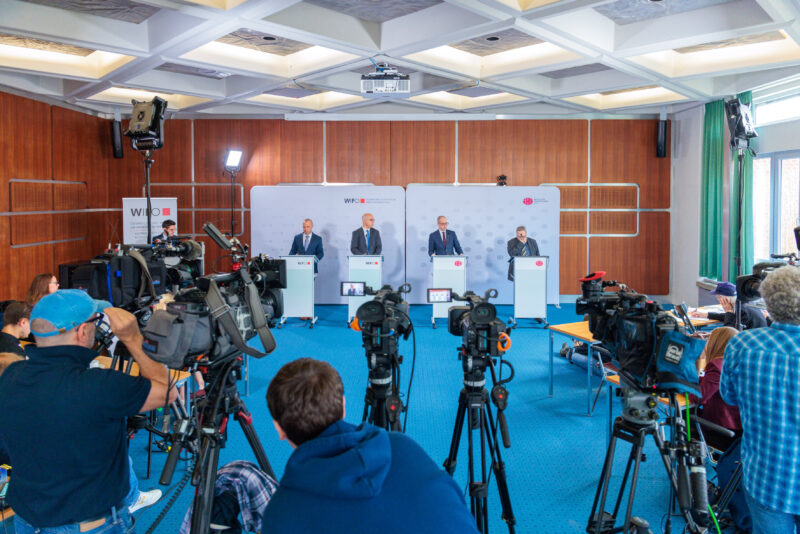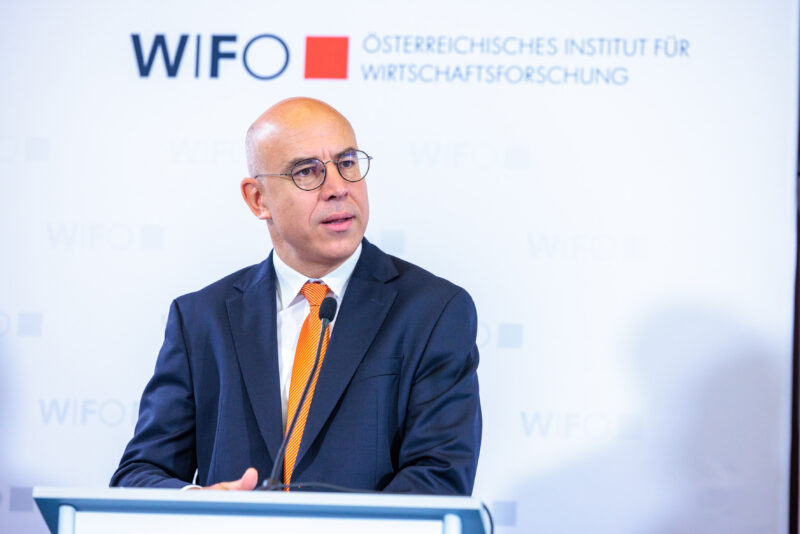
Economic Assessments Stabilise at the End of the Year
The index of current assessments rose by 2.8 points in December and was in positive territory at 10.3 points. In the manufacturing sector, which is particularly sensitive to economic developments, the situation index lost 0.3 points compared with the previous month and remained above the zero line at 3.7 points. In the construction industry, the situation index increased by 2.1 points and remained clearly in positive territory at 19.6 points. In the service sectors, the index gained 4.7 points compared to the previous month and was again noticeably in the confident range with a value of 14.8 points. In the retail sector, the situation index rose by 3.4 points, but remained in sceptical territory at –2.7 points.
The business expectations index remained virtually unchanged in December (–0.1 points) at 0.9 points and was still only just above the zero-line separating negative from positive economic expectations. In the retail sector, the expectations index rose (+2.7 points), but remained deep in sceptical territory at –17.2 points. In the service sectors, the expectations index remained unchanged at 3.2 points and just above the zero line. In the construction industry, on the other hand, the expectations index fell by 2.7 points but remained at an optimistic 32.5 points. This high value is due to the continued high expectations for construction prices. Business situation expectations remained sceptical in the construction industry. In the manufacturing sector, which was particularly affected by the energy price increases, the expectations index showed a slight decline (–0.5 points). At –7.8 points, the index remained deeply pessimistic.


Please contact




















